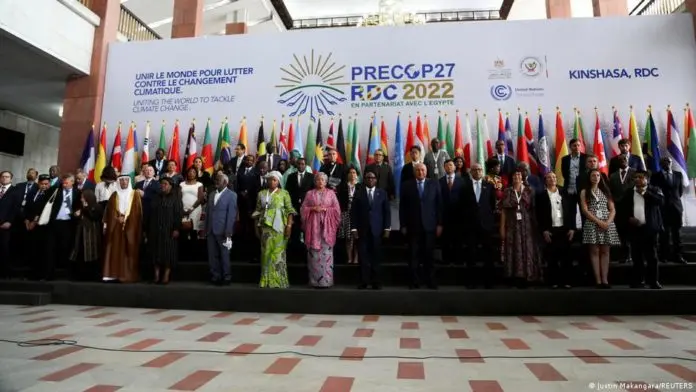- P.O. Box: 11482 Yaoundé, Cameroon; Headquarters: Efoulan, Yaoundé 3
- contact@caessinternational.org

On the occasion of the 27th Conference of the Parties held in Egypt (COP 27), African states further consolidated their position. Faced with insufficient climate financing, a sovereign right to development, and the prospect of oil exploitation, Tosi Mpanu Mpanu, the Democratic Republic of Congo’s (DRC) climate negotiator, emphasized that the DRC cannot prioritize climate action while poverty continues to claim lives across the country. The DRC rejected criticisms from developed nations regarding countries whose CO₂ emissions are inevitably expected to rise to support their development. The country reaffirmed its sovereign right to exploit its oil and gas resources.
According to the Congolese negotiator, it is primarily the developed nations that are responsible for today’s climate crisis. He criticized the fact that since the mid-19th century, those who industrialized, grew wealthier, and consumed most of the atmospheric space are now telling African states: “Don’t do as we did—do as we say.” Such paternalism or imposed diktats, he argues, are problematic when directed at populations that have not benefited from the same level of prosperity.
The DRC’s stance reflects the broader radicalization of developing countries, particularly those in Africa, which since the 2009 Copenhagen Conference have chosen to speak with one voice in climate negotiations to defend their collective interests. African nations now hope to secure significant support from developed countries during this COP 27, held on African soil. In the current context of overlapping crises—health, economic, and security-related—that continue to worsen living conditions on the continent, the outcomes of COP 27 will be crucial for advancing climate action in Africa while combating poverty.